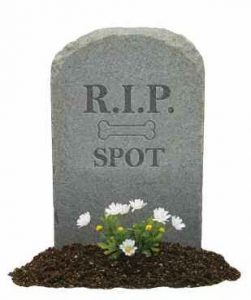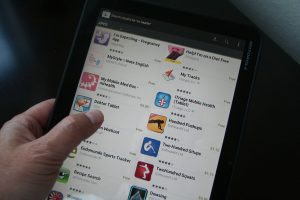 Sales of the Japanese graphic novels and comic books known as manga have been falling inside Japan itself since the mid 1990s—a fact that Carl Horn ’91, manga editor for Dark Horse Comics, attributes to the long decline in the nation’s population—especially at the young end of the spectrum. “Even though Japan has the deserved reputation as a country where adults read comics, the top-selling titles are your Dragon Balls, your Narutos, your One Pieces, your Attack on Titans,” Horn says. “In other words, manga that were made for younger readers.”
Sales of the Japanese graphic novels and comic books known as manga have been falling inside Japan itself since the mid 1990s—a fact that Carl Horn ’91, manga editor for Dark Horse Comics, attributes to the long decline in the nation’s population—especially at the young end of the spectrum. “Even though Japan has the deserved reputation as a country where adults read comics, the top-selling titles are your Dragon Balls, your Narutos, your One Pieces, your Attack on Titans,” Horn says. “In other words, manga that were made for younger readers.”
What’s Next For:
Revolutions?
Syria?
Mexico?
Japan?
The United States?
Earthquake Safety?
Climate Action?
California Water?
Climate Science?
Solar Energy?
California Fruit Farming?
Technology Investing?
Nanoscience?
Digital Storage?
Artificial Intelligence?
Cyber-Threats?
Social Media?
Space Exploration?
Science Museums?
The Sagehen?
Biodiversity?
The Blind?
Big Data?
Mental Illness?
Health Care Apps?
Maternity Care?
Etiquette?
Ballroom Dance?
Thrill Seekers?
Outdoor Recreation?
Funerals?
Writers?
Movies?
Manga?
Alt Rock?
Women in Mathematics?
That means the future of the manga industry is increasingly outside Japan, Horn says. And for American readers, that offers both pluses and minuses.
On the plus side, manga creators are starting to become more accessible to their foreign readers—appearing slightly more often at conventions and responding on social media. On the minus side, however, Horn worries that their stories may lose some of their Japanese flavor.
“The fans don’t necessarily want to see manga becoming ‘more American,’ whatever that means,” he says, adding that for most manga readers, the cultural differences are an important part of the attraction. “However, what they would like to see, I think, are more personal connections with the creators—that is, Japanese creators getting more involved with their English-language readership.”
One thing he doesn’t think will change is the special attraction manga holds for people who feel like outsiders. “Manga is a medium where people who wouldn’t be cast as heroes in traditional American stories, can be,” he says. “You don’t necessarily have to look the part. People considered oddballs, you know, people who dress weird, people with weird hair—in manga they can still be the heroes of an action epic.”
 She’s smart. She’s funny. She’s a 20-something-year-old Saudi woman growing up on the Moon. That’s Jazz Bashara, the protagonist of Andy Weir’s newest sci-fi book, Artemis, and a soon-to-be-made feature film by producer Aditya Sood ’97.
She’s smart. She’s funny. She’s a 20-something-year-old Saudi woman growing up on the Moon. That’s Jazz Bashara, the protagonist of Andy Weir’s newest sci-fi book, Artemis, and a soon-to-be-made feature film by producer Aditya Sood ’97. In films, they’re famously known as continuity errors. But these annoying little bloopers also creep into novels. For example, in J.K. Rowling’s Harry Potter and the Prisoner of Azkaban, a griffin first seen tied to a tree later finds itself tied to a fence.
In films, they’re famously known as continuity errors. But these annoying little bloopers also creep into novels. For example, in J.K. Rowling’s Harry Potter and the Prisoner of Azkaban, a griffin first seen tied to a tree later finds itself tied to a fence. From Pokémon to the Marie Kondo decluttering craze, Japanese culture quickly crosses the Pacific. Costly funerals for furry friends could be next.
From Pokémon to the Marie Kondo decluttering craze, Japanese culture quickly crosses the Pacific. Costly funerals for furry friends could be next. Move over Bear Grylls. Make way Ron Swanson. Take a back seat Naked and Afraid.
Move over Bear Grylls. Make way Ron Swanson. Take a back seat Naked and Afraid. When Evel Knievel tried to jump the Snake River Canyon in 1974, stunts were kind of an oddity. “Now, that’s every Red Bull commercial,” says Grayson Schaffer ’01, editor at large at Outside Magazine and a co-founder at the production company Talweg Creative. After all, he points out, when the public has seen it all, the only way to grab the limelight is to up the ante, usually with a brand paying the way.
When Evel Knievel tried to jump the Snake River Canyon in 1974, stunts were kind of an oddity. “Now, that’s every Red Bull commercial,” says Grayson Schaffer ’01, editor at large at Outside Magazine and a co-founder at the production company Talweg Creative. After all, he points out, when the public has seen it all, the only way to grab the limelight is to up the ante, usually with a brand paying the way. A world transfixed by TV shows like “Dancing with the Stars” will soon be captivated by a new look, as more gender-fluid dancers take the floor, says Denise Machin, assistant director of the Smith Campus Center and director of The Claremont Colleges Ballroom Dance Company.
A world transfixed by TV shows like “Dancing with the Stars” will soon be captivated by a new look, as more gender-fluid dancers take the floor, says Denise Machin, assistant director of the Smith Campus Center and director of The Claremont Colleges Ballroom Dance Company. The queen of good manners, Emily Post, died in 1960, but great-great grandson Daniel Post Senning ’99—one of the editors of the 19th edition of Emily Post’s Etiquette—is helping to carry forward the family business.
The queen of good manners, Emily Post, died in 1960, but great-great grandson Daniel Post Senning ’99—one of the editors of the 19th edition of Emily Post’s Etiquette—is helping to carry forward the family business. Which nation in the “developed world” spends the most on maternity care? You guessed it—the United States. And which has the highest maternal mortality rate? Same answer, and the numbers aren’t even close.
Which nation in the “developed world” spends the most on maternity care? You guessed it—the United States. And which has the highest maternal mortality rate? Same answer, and the numbers aren’t even close. Rising costs and access to health care are issues that weigh heavily on Americans and their families. These issues deepen when it comes to mental health. Common mental illnesses can be extraordinarily disabling, and yet, many patients do not receive treatment.
Rising costs and access to health care are issues that weigh heavily on Americans and their families. These issues deepen when it comes to mental health. Common mental illnesses can be extraordinarily disabling, and yet, many patients do not receive treatment.